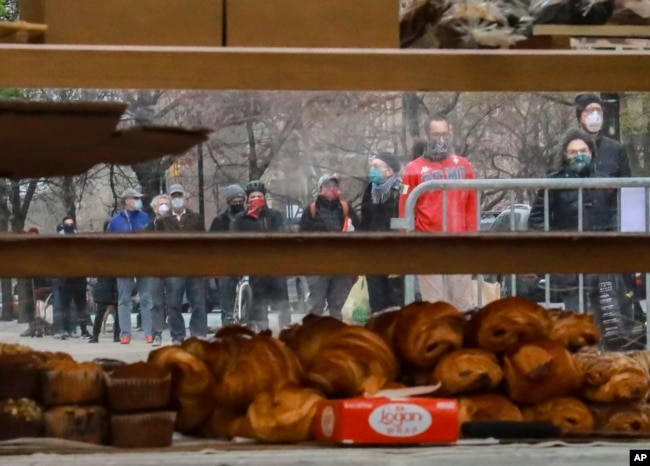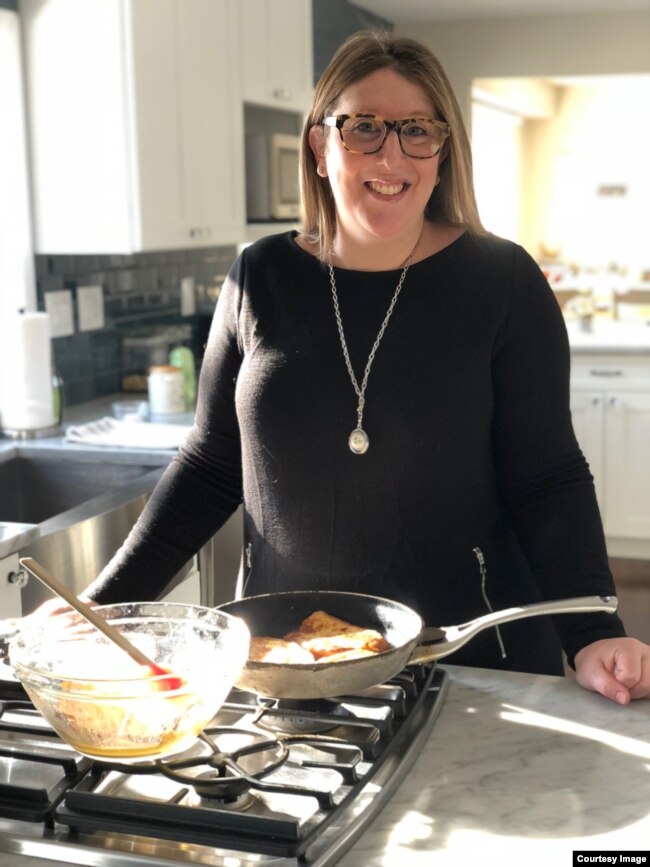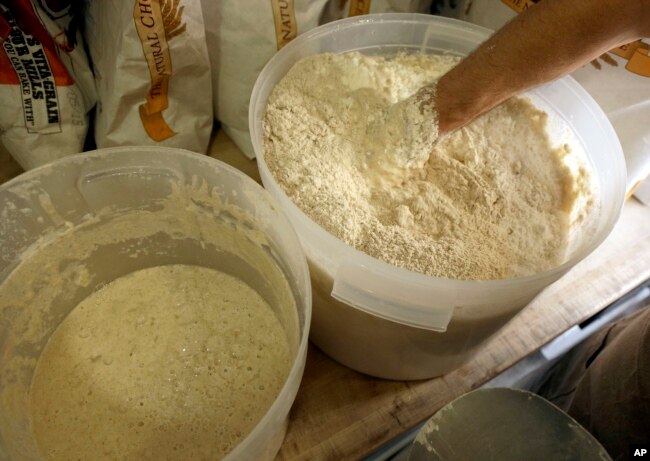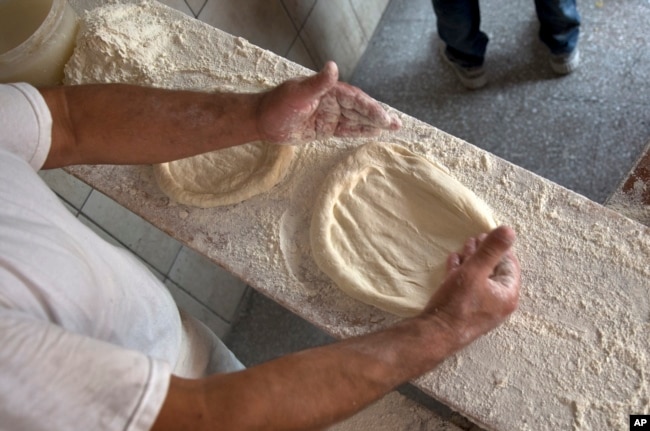The world is experiencing a major health crisis.
As the new coronavirus spreads, many countries are limiting their citizens’ activities. Travel has been restricted. Many schools are closed. In major cities around the world, restaurants and other businesses are shut down.
Public emergencies bring out a certain type of person – the panic shopper. Some people fear not being able to find basic needs for survival. So, they buy everything off supermarket shelves in preparation for the days to come.
Bread is often among the first products to disappear in emergency situations.

People wearing masks gather to form a "bread" line at Bread Alone outdoor market, while maintaining social distancing requirements during the COVID-19 outbreak April 4, 2020 in New York. (AP Photo/Bebeto Matthews)
So, if you have never made bread, now may be good time to learn. Bread making is a survival skill. With very few simple things such as flour, salt and yeast you can bake a fresh loaf of bread for your family, neighbors or coworkers.
Baking is not just a useful survival skill. It can make you feel better at stressful times. In fact, baking and cooking have been used to treat people with mental health issues.
Julie Ohana is a social worker. She offers what she calls culinary therapy to her patients in New York City.

Julie Ohana is a culinary therapist. She uses cooking and baking as a therapy for her patients.
“I say ‘therapy’ because to me cooking is so therapeutic. And ‘therapeutic’ really means something that makes you feel good, something that is helpful and beneficial to the person doing it ...”
Julie Ohana uses culinary therapy to help people overcome many kinds of issues. She explains that culinary therapy works on many levels.

In this Sept. 10, 2015 photo, Chad Robertson, co-owner of Tartine Bakery, makes sourdough bread in the kitchen at Tartine in San Francisco. (AP Photo/Jeff Chiu)
Baking requires mindfulness.
“So when you’re in the kitchen – whether you’re cooking or you’re baking – it really requires a certain level of mindfulness, of being present in the moment. Specifically, when you’re baking. And baking really requires step-by-step, following a recipe, being more precise. Kneading the dough or rolling something out, you really get the full benefit of being present in the moment and being able to relax and put aside all the other thoughts and just focus on the here-and-now. And there really are very strong benefits of being able to do that, to be able to relax, to decompress, destress, and really increase one’s level of life satisfaction.”
Baking is a labor of love.
Ohana also says baking is a process filled with love. It not only makes you feel good, it produces something tangible something you can touch and eat! Ohana calls baking a labor of love.
“And when you bake, you go through this whole process and it really is a labor of love … and you end up with this finished product that - not only is it tangible - but it’s edible and it’s delicious.”

Bakers prepare the dough with ingredients provided by families to prepare and bake special pitta bread called in Albanian (pitalka) for Iftar during the holy month of Ramadan in southern Kosovo city of Prizren on Friday, June 17, 2016. (AP Photo)
Baking is emotional.
Often our food experiences are tied to family memories and stories. We remember meals our grandmothers made. We teach our children important recipes for family favorites.
Ohana says something that all bakers know giving delicious, baked goods makes the giver feel as good as the receiver. So, she calls baking a win-win.
“To be able to pass that on to someone else certainly can make the day for the person receiving it. But It’s also just as powerful for the person who’s giving the baked goods. It’s a win-win. It’s not just something purely that you do for the other person. The baker, the cook really gets to benefit from the act as well.”
Words in This Story
shelf – n. a flat board which is attached to a wall, frame, etc., and on which objects can be placed
stressful – adj. full of or causing stress : making you feel worried or anxious
culinary therapy – n. using food production to heal mental issues
beneficial – adj. producing good or helpful results or effects
recipe – n. a set of instructions for making something from various ingredients
precise – adj. very accurate and exact
knead – v. to work and press into a mass with the hands
relax – v. to stop feeling nervous or worried : to spend time resting or doing something enjoyable especially after you have been doing work
delicious – adj. appealing to one of the bodily senses especially of taste or smell